Lack of an outdoor space for a garden? No problem; just do it indoors! Here are 12 easy indoor gardening ideas to green your home.
- Wonder wall
A luxuriant and living green wall will have your interiors looking and feeling like they’re part of the outdoors. Choose a spot that has plenty of sunlight and ventilation, like the balcony. The only downside? It’s a pretty high maintenance option since you will need to do regular pruning to prevent overcrowding and the irrigation system has a tendency to get clogged from time to time. If you’re still up for it, you can either choose to do up your system from scratch by purchasing ready-made modular shelves or if you’re not very handy with tools, hire a professional to do it up for you.What to plant: Various philodendrons, money plants and other creeper plants.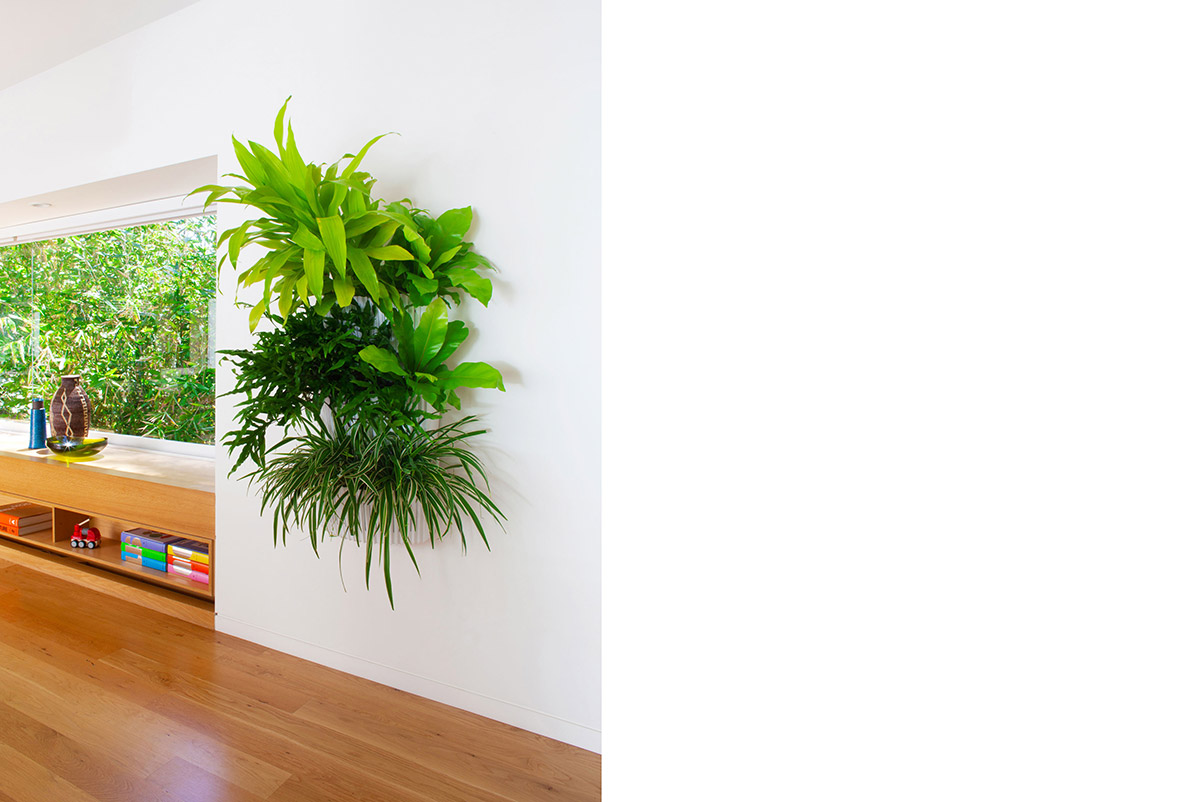
- Culinary adventures
For home cooks, having a fresh supply of your favourite culinary plants right at your fingertips might sound like a pipe dream. But not when you have a kitchen garden of your own! And it’s easy to start one. Source for a container, cut some holes at the bottom, choose a mixed soil with equal amounts of clay, sand and compost, buy grown edible plants from the nursery (they are a lot easier to grow with), and start growing!What to plant: For beginners, try herbs like mint, basil and Indian borage.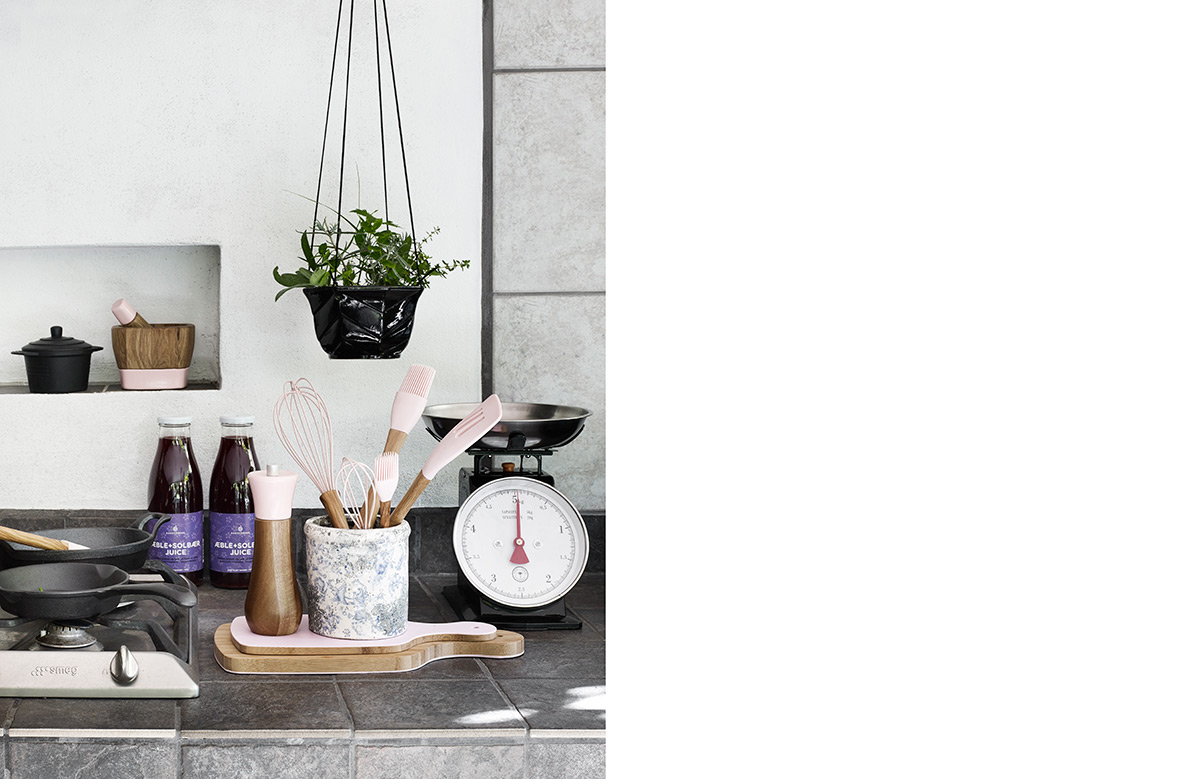
Image credit: Nordal
- Green house
Having a terrarium is like having an entire garden in the palm of your hand, albeit a mini (and space-saving) one of course. Keep to three to four plant varieties so that your jar doesn’t look like an overgrown jungle. Note that terrariums, whether open or closed types, don’t need direct sunlight but they do need to be kept in places with light. They require infrequent maintenance since they are an ecosystem of their own, and the amount of water they need depends on the plants you use.What to plant: Succulents, ferns, mosses, fittonia, and pitcher plants.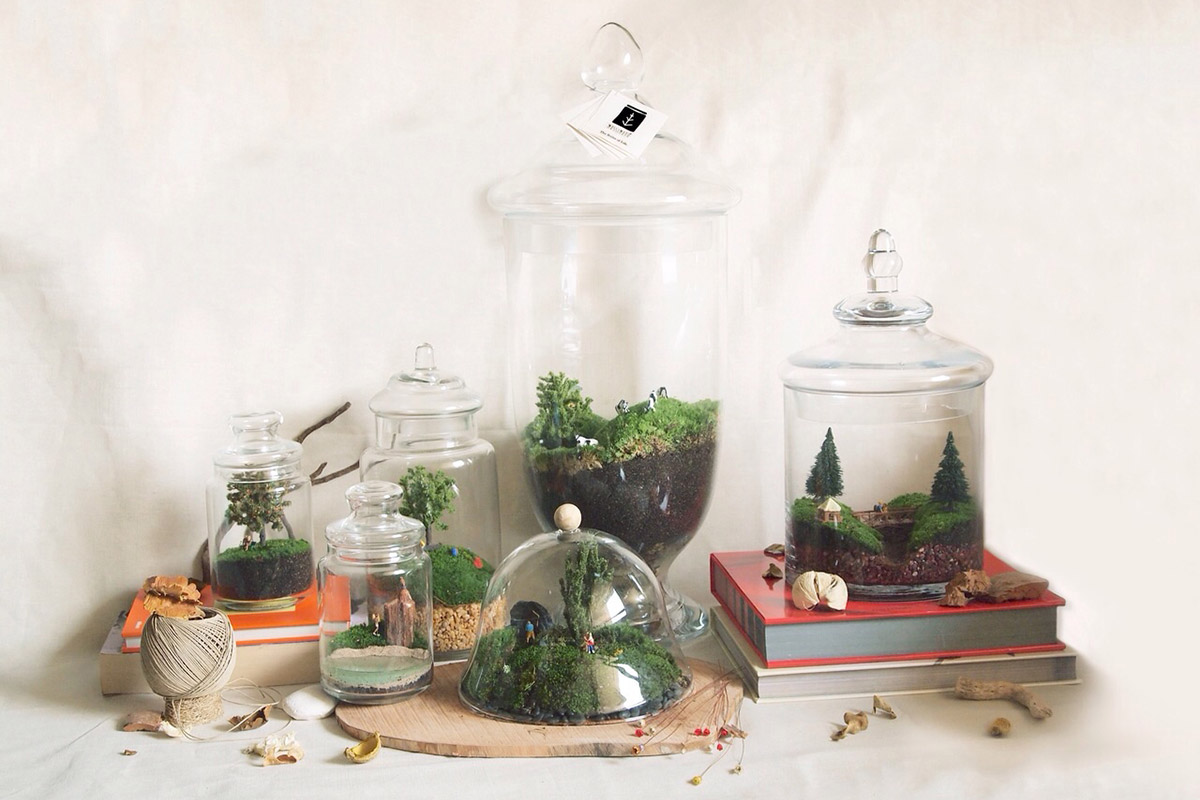
Image credit: Mossimoto
- Window of opportunity
Curtains are great window decorations, but plants by the window are more fun! Foliage that cascade beautifully downwards are excellent choices, but determine first how much sunlight actually streams in as that will heavily influence what plants you choose. In general though, window plants tend to get exposed to a good amount of sunlight so go for ones that can take, or require, all that sunshine.What to plant: Tillandsia if there’s no direct sunlight and herbs like basil that need the sun.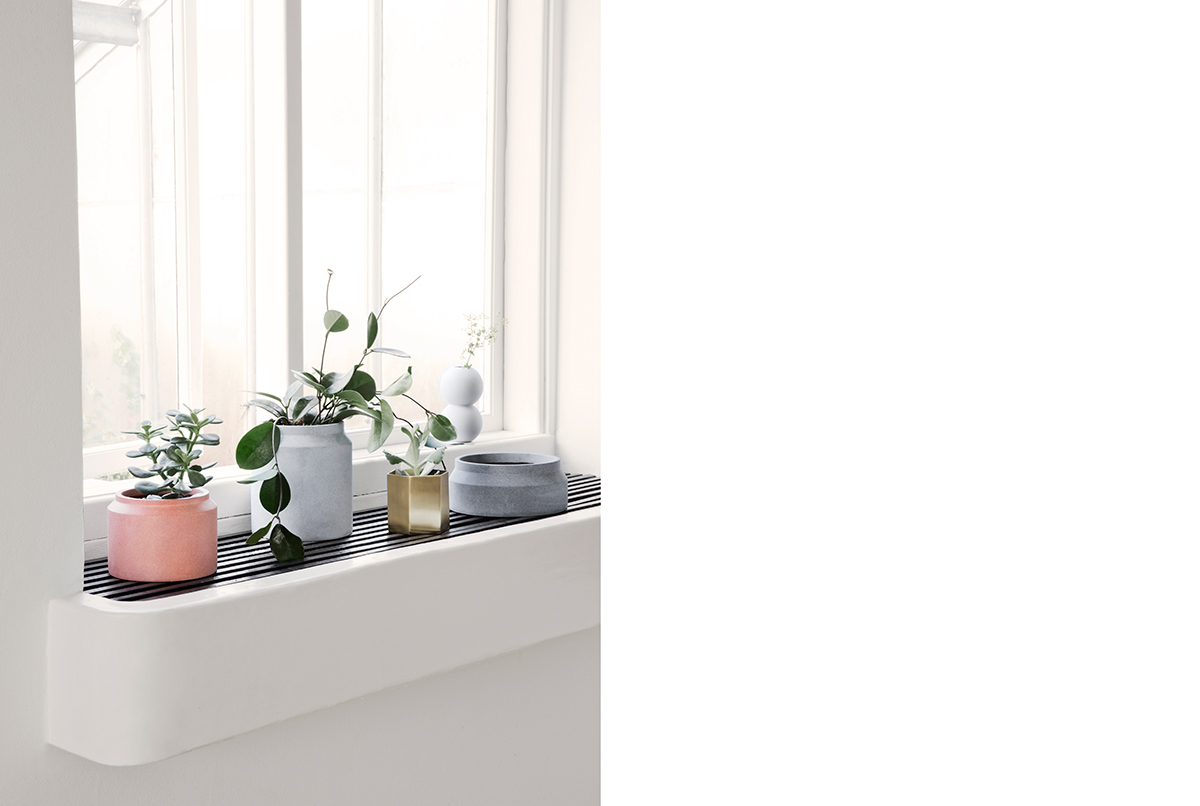
Image credit: Ferm Living
- Centre of attention
Fresh flowers are a lovely choice to spruce up your dining table, but they don’t last very long. So why not go with potted plants as your centrepiece instead? If you set your table or entertain often, choose non-flowering greens instead of bright blooms as they are neutral enough so they won’t compete with the rest of your food and table decor. Your choice of containers and planters are important too if you wish to match them with the rest of the space. Housing your greens inside clear glass boxes like these give an industrial, laboratory feel to your home; just make sure your plants can breathe by keeping the top uncovered!What to plant: Green vines like English ivy and money plants.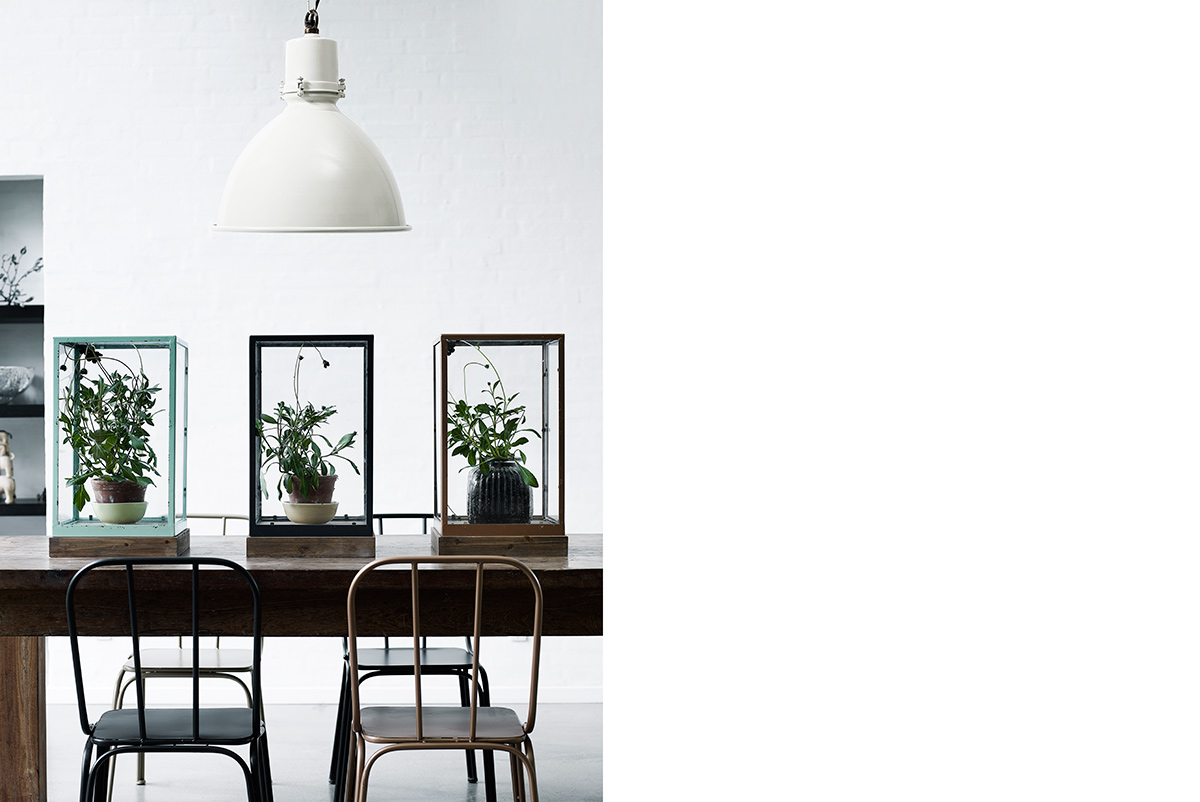
Image credit: Nordal
- Tea party
Don’t know what to do with those small, unused cups lying about? Create a teacup garden with them! As drainage might be an issue unless you’ve drilled holes at the bottom of the drinkware, select plants that don’t require a lot of water. After watering, tip the cups slightly to drain or just pick the plants up from the cups to mist and water as needed. Gardening just doesn’t get any easier than this.What to plant: Petite greens like succulents that are low on maintenance and don’t grow fast.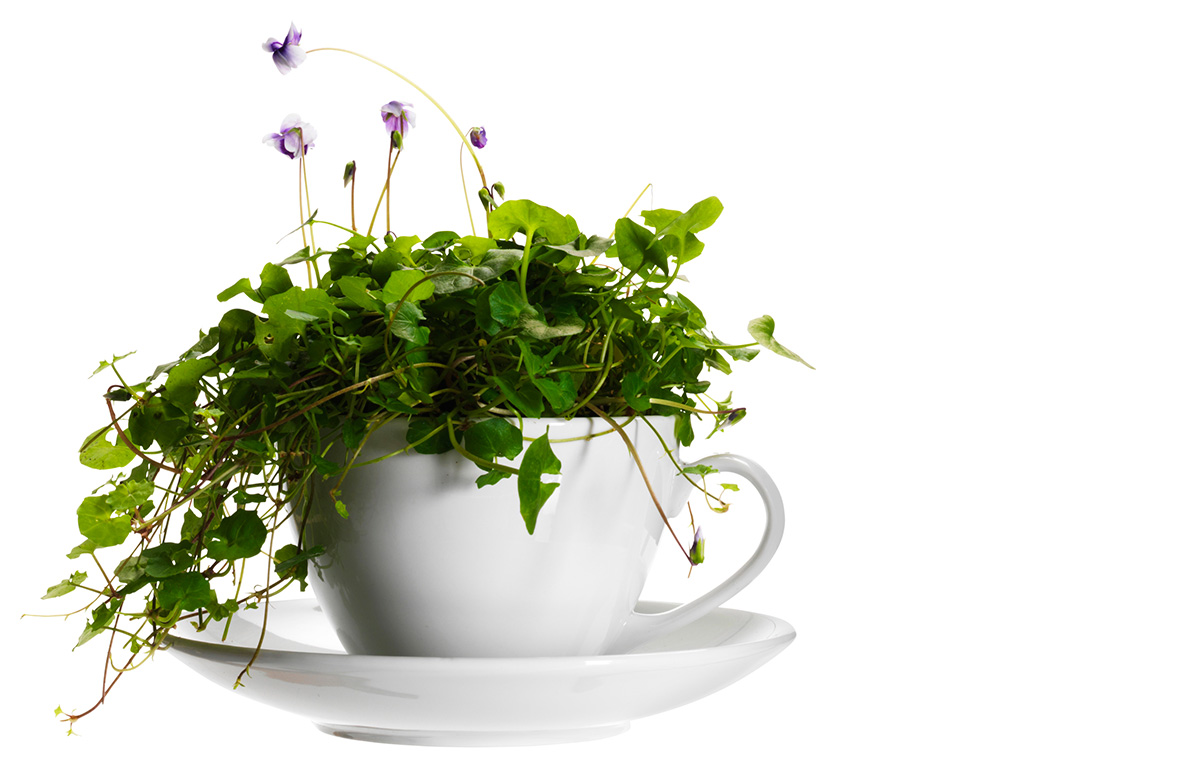
Image credit: IKEA
- Do it yourself
For forgetful folks out there, a self-watering pot should come in handy. The idea behind a self-watering planter is that water is held in a reservoir to deliver water to the roots of your plant whenever they need it, so the roots stay consistently moist. There are several benefits to a self-watering system: it saves water as the trapped water in the reservoir cannot evaporate with the soil covering on top and it allows you to go for several days without needing to water your plant. Do up a system yourself or get a ready-made, self-watering planter like this one from Boskke.What to plant: Any type of plants that would fit and grow into your planter size.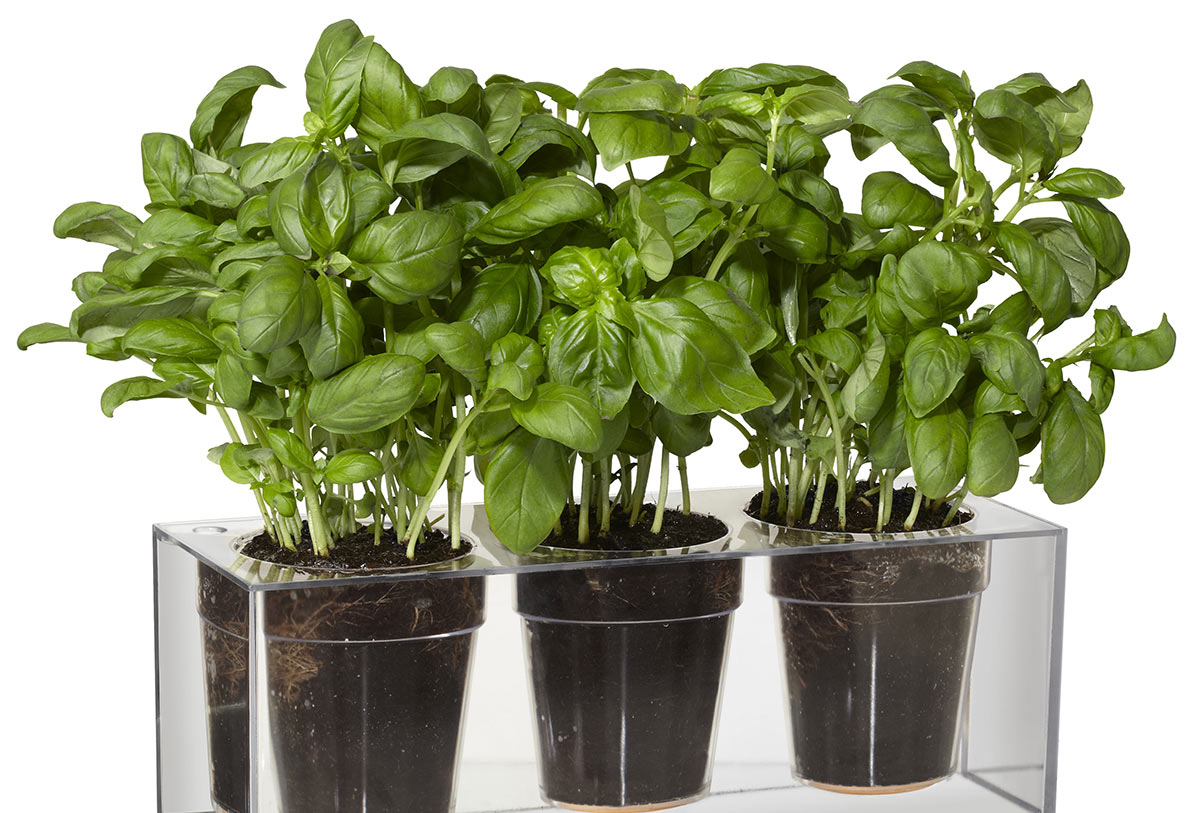
Image credit: Naiise
- Hang on
Here’s an unconventional feature wall idea: hanging plants! Move aside wall paintings and murals, because plants are a much cooler way to dress up your empty walls. And it’s such a space-saving solution too. Mix things up by going for different plant types. Using a variety of planters and dangling them at varying heights from your ceiling can give greater visual interest.What to plant: Tillandsia, and plants that adopt a pendulous growth habit where their stems and foliage hang over.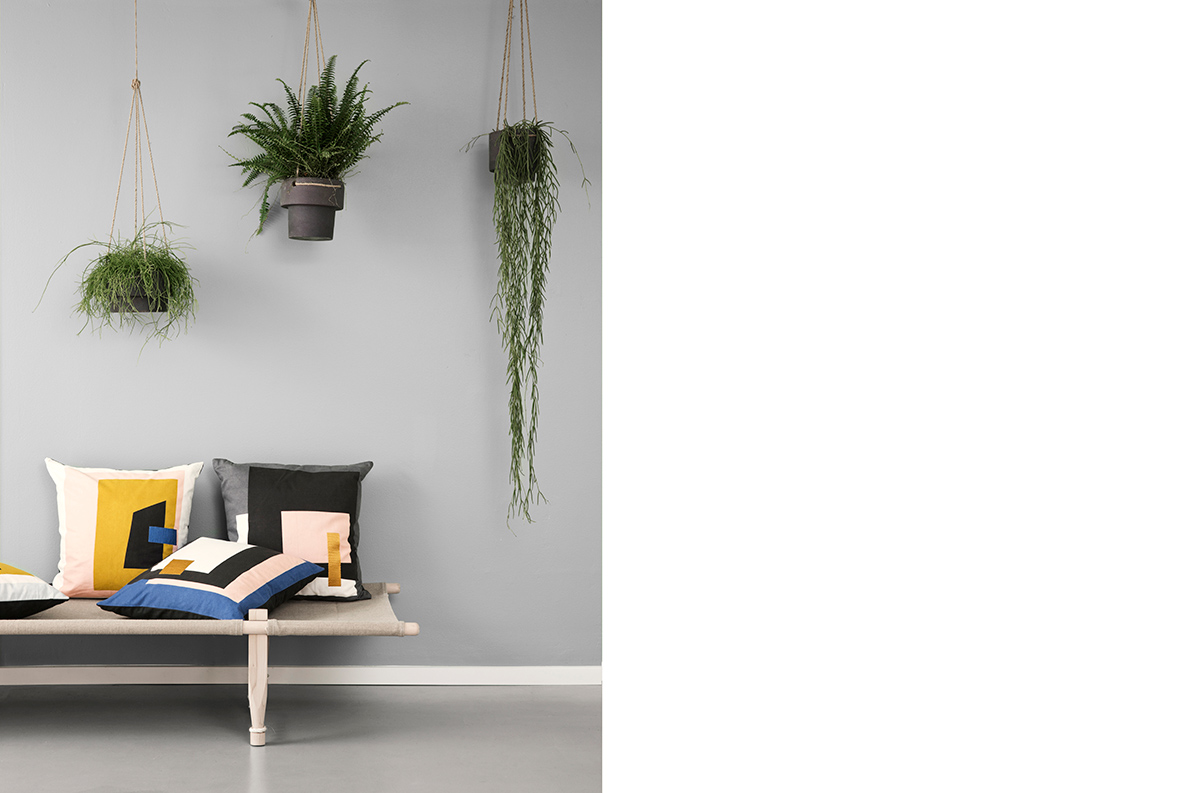
Image credit: Ferm Living
- Defy gravity
Hanging your planters is one way to make use of vertical space. But why do it right side up when you can hang it upside down? We love Boskke’s revolutionary Sky Planter, which is not simply an upside down plant pot, but an entire reservoir system in itself to keep your plants hydrated. To keep the soil in place, a simple locking disc is used. As the plants are allowed to hang freely, it’s particularly useful to grow types that typically require structural support.What to plant: Ferns, ivy, orchids, geranium and herbs.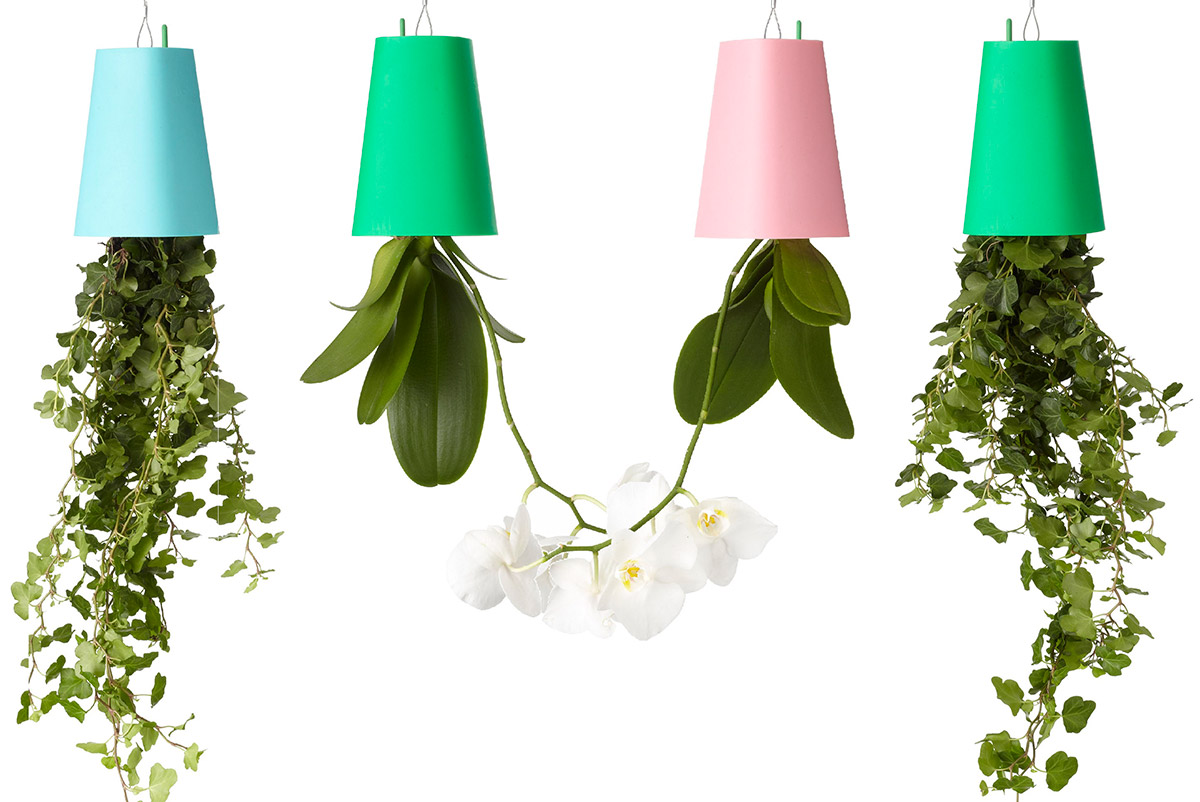
Image credit: Boskke
- Move along
Trolleys have to be one of the most versatile and useful pieces of furniture to have at home. They can serve as a magazine rack, a display shelf, a serving cart for when you entertain or even as your indoor garden! Get a mobile and instant indoor garden simply by arranging your plant pots onto your trolley. The best thing about having a portable garden is that they can be moved around the home for whenever you need a quick spruce-up to your space!What to plant: Any type; avoid those with pendulous growth unless you’re keeping your garden stationary as they might obstruct movement.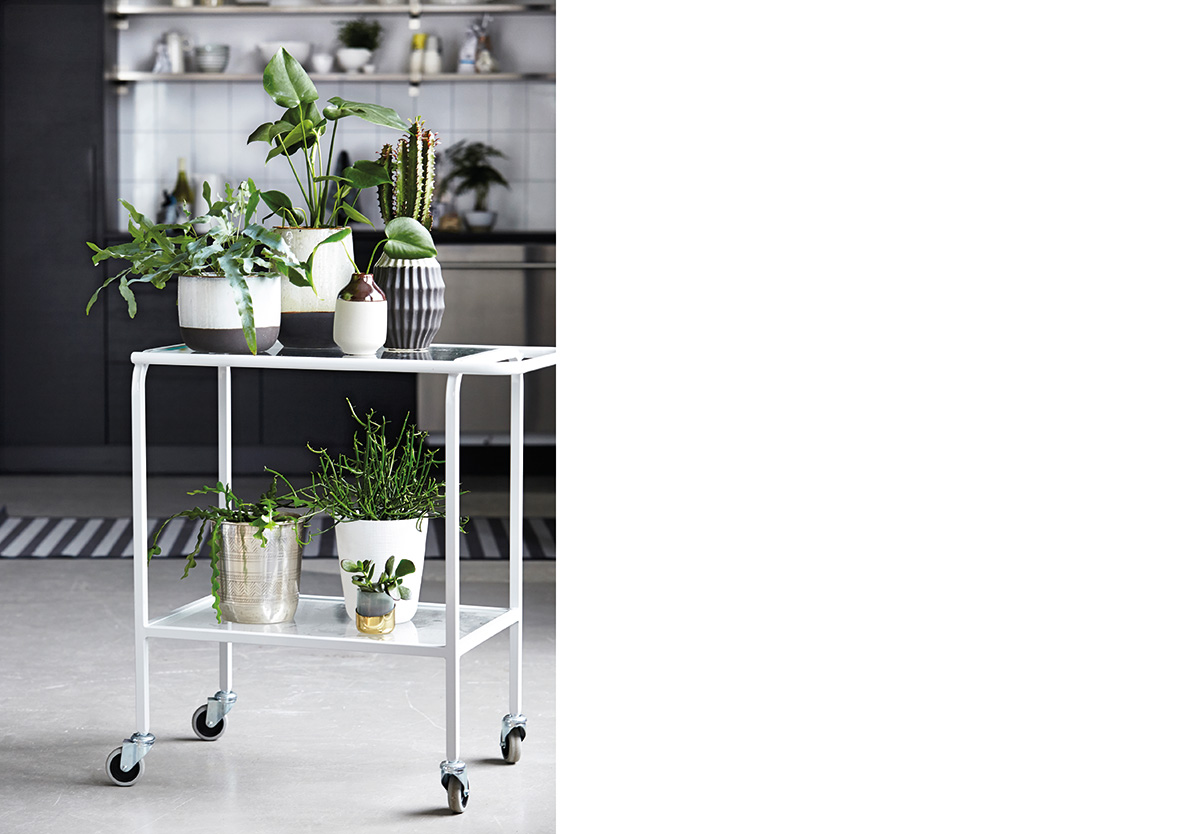
Image credit: House Doctor
- Level up
If you have minimal space for growing your greens, think tiers. A tiered garden is just like a vertical green wall, just without all the fuss! Stacked planters provide plenty of garden space as well as a feast for the eyes when your plants are fully grown. Plant different varieties in different containers for a more interesting visual spectacle. You can also double the space-friendly feature by hanging up your tiered planters from the ceiling.What to plant: Herbs, various philodendrons, money plants, other creeper plants and plants with a pendulous growth habit.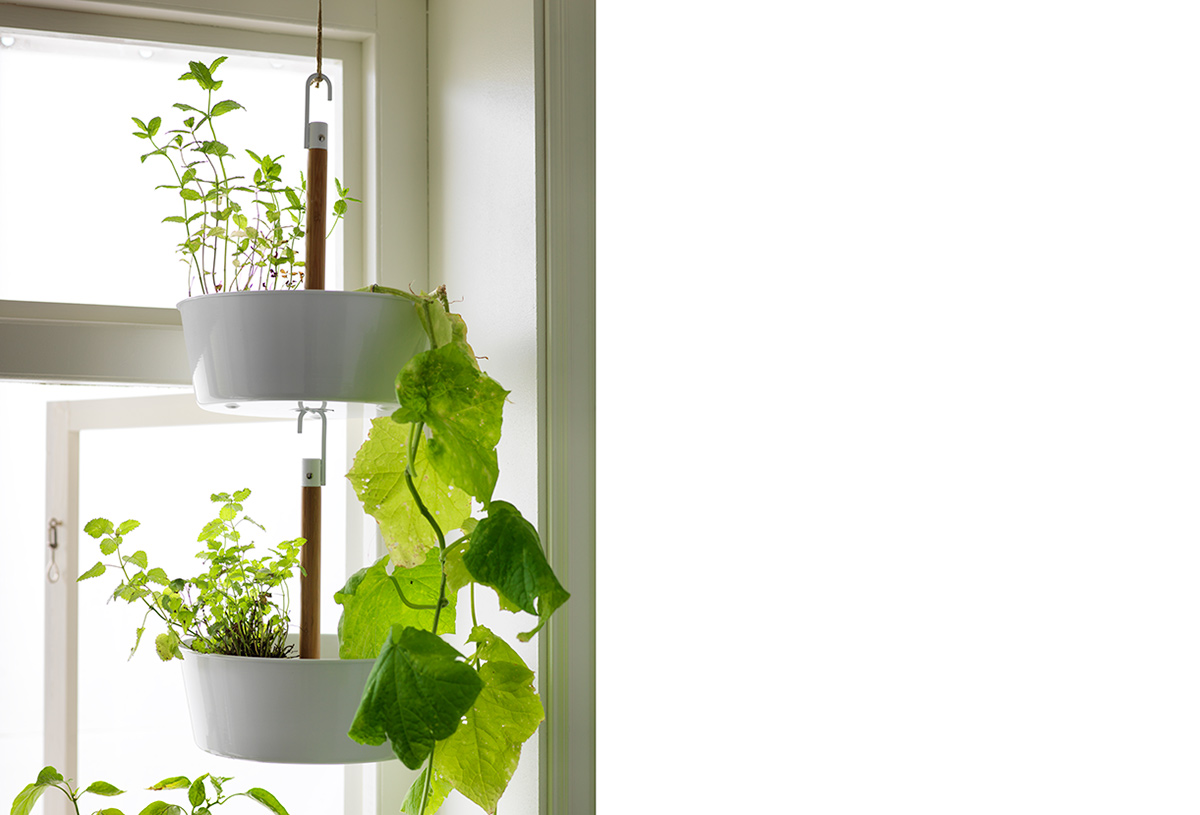
Image credit: IKEA
- Tropical rainforest
You don’t need expensive surface tiles or a luxurious vanity counter to turn your bathroom into an envy-worthy spa retreat. Create a tropical sanctuary simply by incorporating plants. Bathrooms tend to be low on light due to their small windows, so the plants you choose should survive on little sunlight. The high humidity levels inside the bathroom however, make it a great environment for plant types that thrive in our tropical climate.What to plant: Low-maintenance plants like sansevieria and bamboo, hardy plants like aspidistra and plants that embrace humidity like dragon plants and ferns.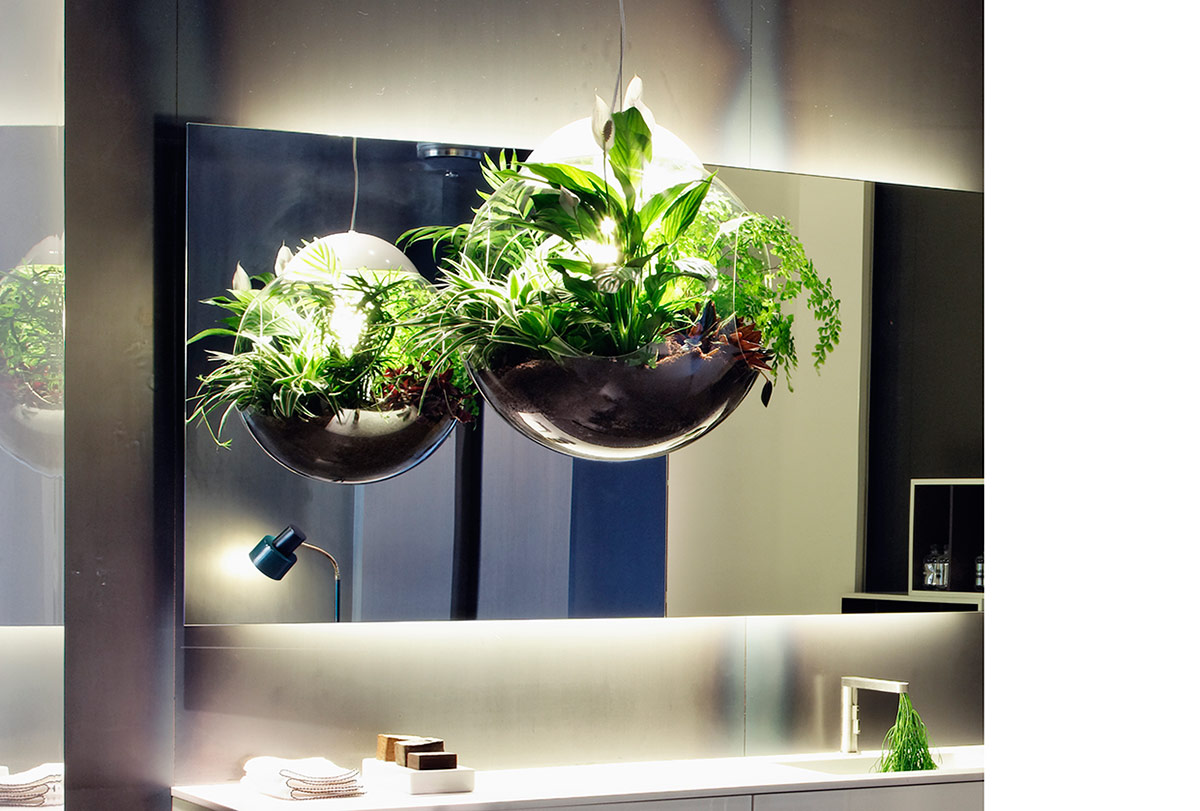
Image credit: LADP



